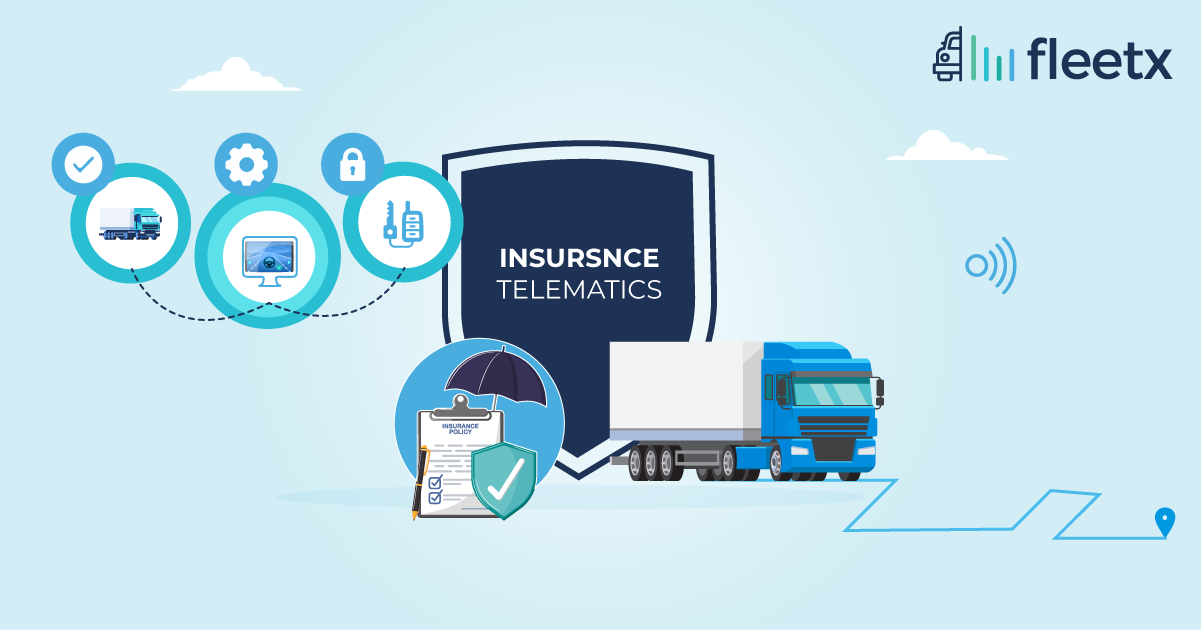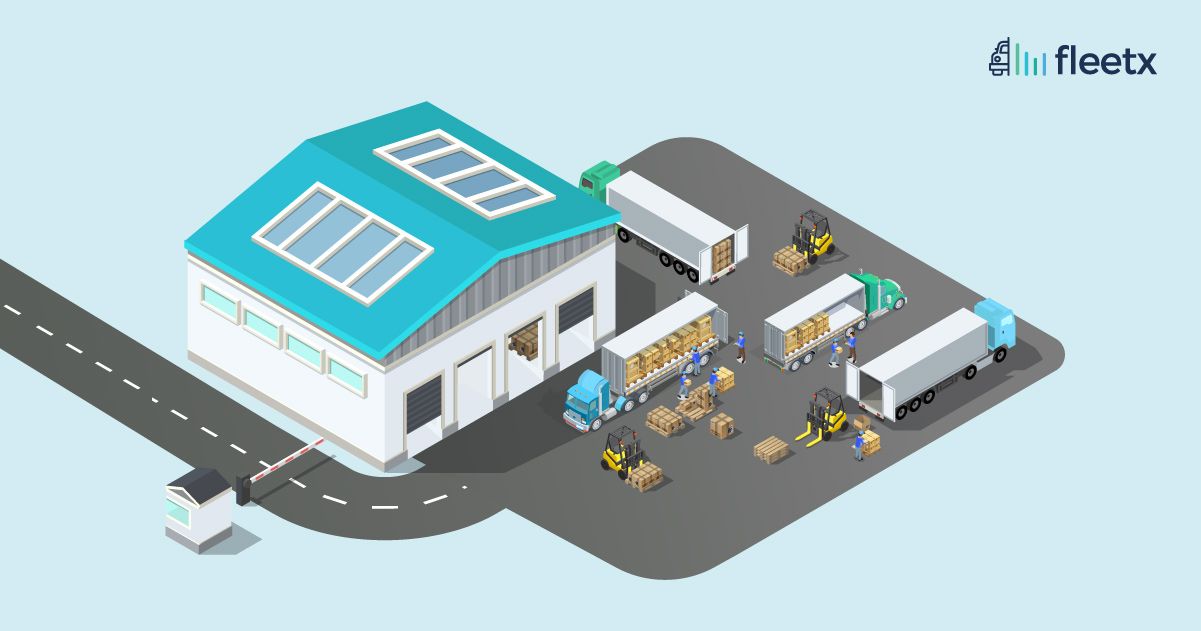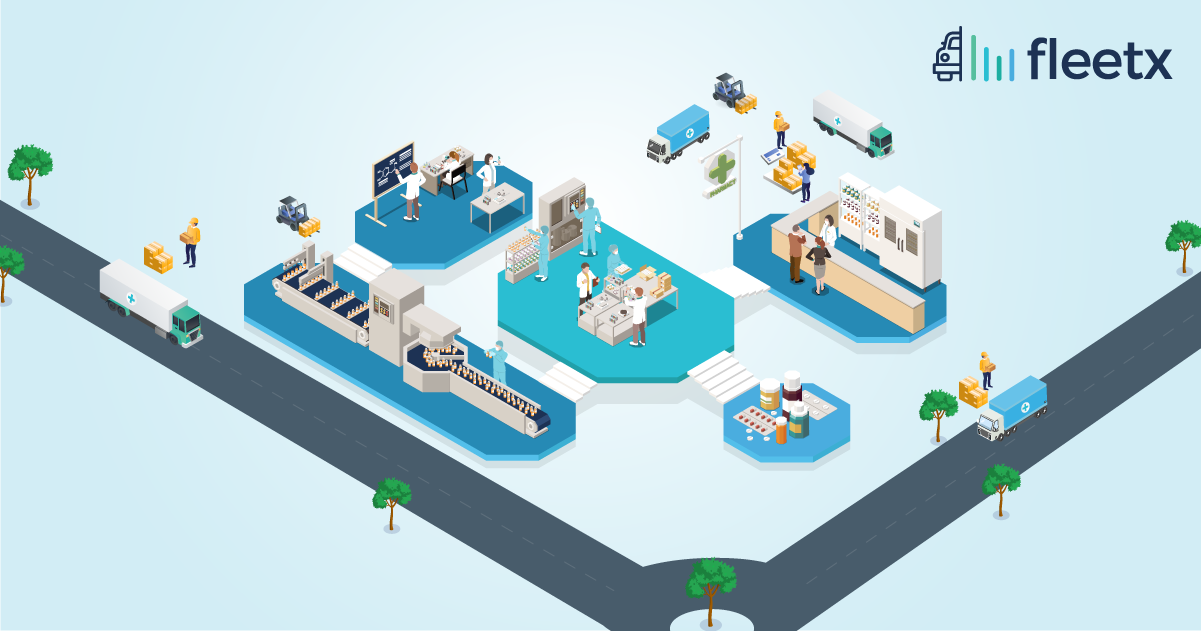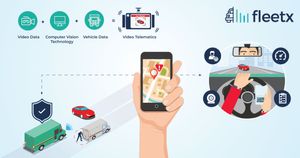
The development of several new technologies and the shift to digitalization have dramatically altered many industries, and the fleet business is now getting on board. In recent years, the auto insurance sector has experienced rapid development and increased technical advancement. This sector is expanding in new directions as a result of the introduction of numerous new concepts that are impacting all parties, including drivers, truck owners, and insurance companies.
Telematics insurance is a novel idea that has the potential to transform the trucking sector’s future. In a recent suggestion, the Insurance Regulatory and Development Authority of India (IRDAI) encouraged the adoption of "Telematics for Motor Insurance." Soon, the cost of our insurance would be influenced by the way our drivers drove and how much our truck was driven.
The premium amounts for this type of auto insurance are established based on the type and behavior of the driver. Conscientious and careful drivers are rewarded by this new insurance technology, while reckless drivers are encouraged to focus on improving their driving style. This technology has the potential to solve the trucking industry's two biggest problems: driver behavior and cargo/freight safety.
What telematics insurance has to offer large truck owners and fleet owners?
Telematics insurance is a type of insurance policy that uses telematics technology to monitor and track the driving behavior of a vehicle. The information collected is used by insurance companies to determine the risk level associated with insuring a vehicle, which can help determine the insurance premium for that vehicle.
For large truck owners and fleet owners, telematics insurance offers a number of benefits, including, improved safety by providing data on key aspects of a truck’s operation, including speed, acceleration, and braking, helping to improve overall driving safety, increased efficiency by providing real-time data on location and truck status, which helps fleet owners to optimize operations and reduce costs, better risk management by providing better insight into driver behaviors, which can help identify areas where improvements are needed, such as aggressive or dangerous driving; reducing the risk of accidents; and lower insurance premium rates.
Overall, telematics insurance provides fleet owners and truck owners with valuable information about their vehicles and driving behavior, which can help improve safety, reduce costs, and manage risk more effectively.
Why is telematics based insurance better than conventional insurance?
In telematics insurance, information about the driver's driving behavior is gathered and used to determine the premium cost. This newly developed method is better than the conventional one because in telematics it evaluates the actions and behaviors of the drivers in actual scenarios and bases the premium rate on such behaviors. With this system, drivers have more influence over premium expenses because they may choose how much they wish to pay for insurance. If drivers practice safe driving, they will benefit from cheap premium prices, while those who drive recklessly must pay higher insurance premiums. This will benefit both fleet owners and drivers with clear data and less insurance rates.
Telematics insurance operates on a principle that differs significantly from traditional insurance. The primary variables that determine its cost are the driving distance, mileage, location, time, and driving style. The insurance companies figure out how much each driver will pay for their premiums after keeping track of a variety of factors, including how far the truck has traveled, how long it has been in use, the route taken while driving, hard braking, acceleration hard corners, airbag deployment, recorded braking history, acceleration pattern, and many others.
The scanning of odometers and other in-vehicle telecommunication equipment that are built into cars by default is how the insurance firms gather this data. The idea behind this strategy is useful for truck owners as it tracks driver's driving habits and base insurance pricing decisions on that information. Every driver is fairly charged under the clear policy.
Impact of telematics insurance
Insurance telematics can almost certainly have a substantial impact on large truck and fleet owners. This is due to the accuracy of the data on driving behavior, which enables more personalized and targeted insurance premium pricing. The following are the potential implications of insurance telematics for fleet businesses:
Cost- effective: Telematics insurance can assist large truck owners and fleet owners cut their insurance costs by supplying insurance companies with more accurate data on their driving habits. Drivers who follow safe driving practices are more likely to pay lower premiums, whereas those who engage in riskier activity are more likely to pay higher premiums.
Increased safety: Telematics insurance encourages safe driving by delivering feedback and rewards to drivers who follow good behaviors. This has the potential to prevent accidents and make roads safer for everyone, which is especially significant for large vehicles and fleets.
Improved management: Telematics technology may offer fleet owners with real-time data on their drivers' driving behavior, allowing them to discover areas where safety and efficiency can be improved. This can assist fleet owners in better managing their operations and lowering costs.
Improved driver behavior: Telematics insurance gives detailed data on drivers' driving patterns, allowing them to identify areas where they may improve their driving and become safer, more responsible drivers. This can help reduce accident risk and improve the overall safety of large trucks and fleets.
Conclusion
In the Indian trucking industry, shifting to telematics is still in its infancy. The idea needs time to gain widespread acceptance. The decision to accept telematics insurance will be based on three factors: the number of kilometers of truck trips, the probability of something going wrong , and the cost of insurance. Regardless of past driving records, truck owners can lower their insurance costs by implementing driver coaching. This technology will impact your driver’s on-the-road behavior and monitor it in real time for future reference. Thus, real-time tracking will promote better driving behavior, which results in fewer claims. Therefore, telematics technology has a very broad application in the trucking industry and can be utilized by truck owners to increase insurance penetration and awareness.
As, ais 140 device has compulsory in few states, now it is time to evaluate if the usage based insurance is beneficial to the trucking industry or not?






